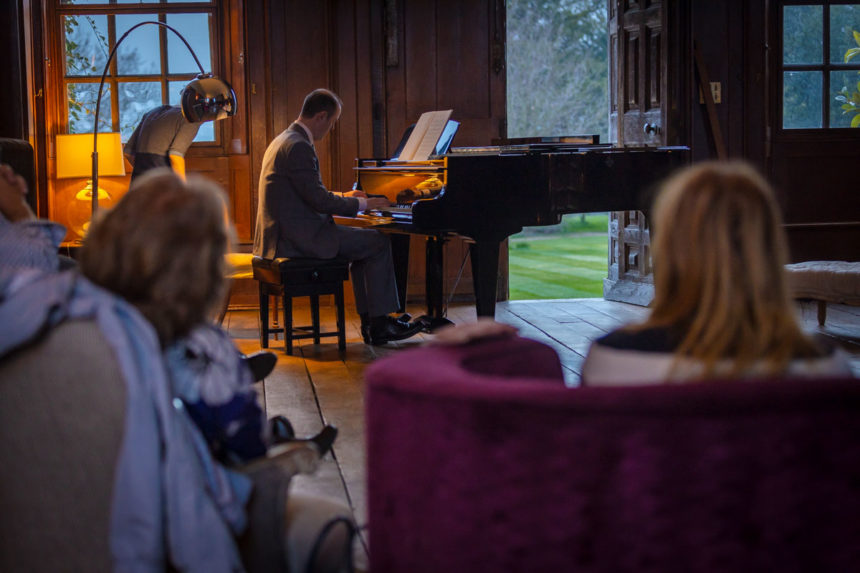How did you first discover the piano?
I grew up in a vicarage with an upright piano in the front room and a church organ just next door. I heard lots of music growing up though my parents don’t really play. When I was four, I started having ten-minute piano lessons with Mrs Cole – she lived up to her name – her small one-up-one-down house was full of smoke from her coal fire and the piano keys were sooty from the fire and from cigarettes. Mrs Cole’s husband was confined to the garden shed while she taught! I am forever grateful that Mrs Cole made me sit every theory exam from 1 to 5 and she taught aural, sight-reading, scales, pieces and duets in every lesson.
What do you think is important about a residential piano course, in comparison to just having regular lessons?
Camaraderie (is that spelt right?) Playing the piano is often quite a solitary experience. Players of orchestral instruments have it easy – there are endless opportunities for playing together, but there aren’t many pieces written for more than one piano! So the chance to talk through the challenges and joys of playing the piano with people on the same journey is really rewarding and motivating. We often do a few piano duets which are lots of fun.
As well as performing and teaching, you also conduct and compose. How do you combine all these different aspects of a musical career?
I’m lucky to have a diverse career. My main job as Director of Music at Twyford School affords me lots of opportunities for composing. I’ve written three or four full-scale musicals, several two-part anthems for my choir and lots of pieces for Orchestra. Composing for the school orchestra is a great challenge because I have such a wide range of abilities – Grade 7 violins at the front and Grade 1 horns and double basses at the back. It’s really limiting to write pieces for beginners, but that in itself can help focus my mind and give me the initial inspiration for the piece. My best selling book at the moment is “First book of Organ Tunes” and is available on Amazon.
What do you enjoy most about teaching?
The summer holidays! No – the best thing about teaching is when a pupil has a lightbulb moment or when a pupil has clearly absolutely loved a performance and has it written all over his/her face.
If you weren’t already a musician what would you do?
I took Maths, Physics and Chemistry A-levels along with music as I really wasn’t sure what direction I would take at that stage. I think I might have pursued Chemistry at University; Physics got a bit dull and Maths got a bit hard!
What should we expect from a course at Finchcocks?
Finchcocks is just a wonderful place to spend a weekend – I’ve just got back home from a gloriously sunny weekend with six brilliant pupils and I feel well fed and watered.
As a guest on one of my courses you can expect some challenging but refreshingly novel approaches to piano playing. There will be some improvisation, some top tips for scales and arpeggios, some quick fixes for fingering, pedalling or practice technique. There will be a lot to take in, but I always try to explain everything I know about chords and scales and how they fit together to make music. The challenge for me is to work out exactly what help/advice each individual needs within ten minutes of meeting them!
QUICK FIRE
Achievement you are most proud of:
Being a daddy (Awww)
Guilty pleasure:
Bourbons
Favourite pianist:
Herbie Hancock
Castaway disc:
Conversations with Myself – Bill Evans
Signature dish:
Aromatic Duck (cooked from scratch, not takeaway!)


